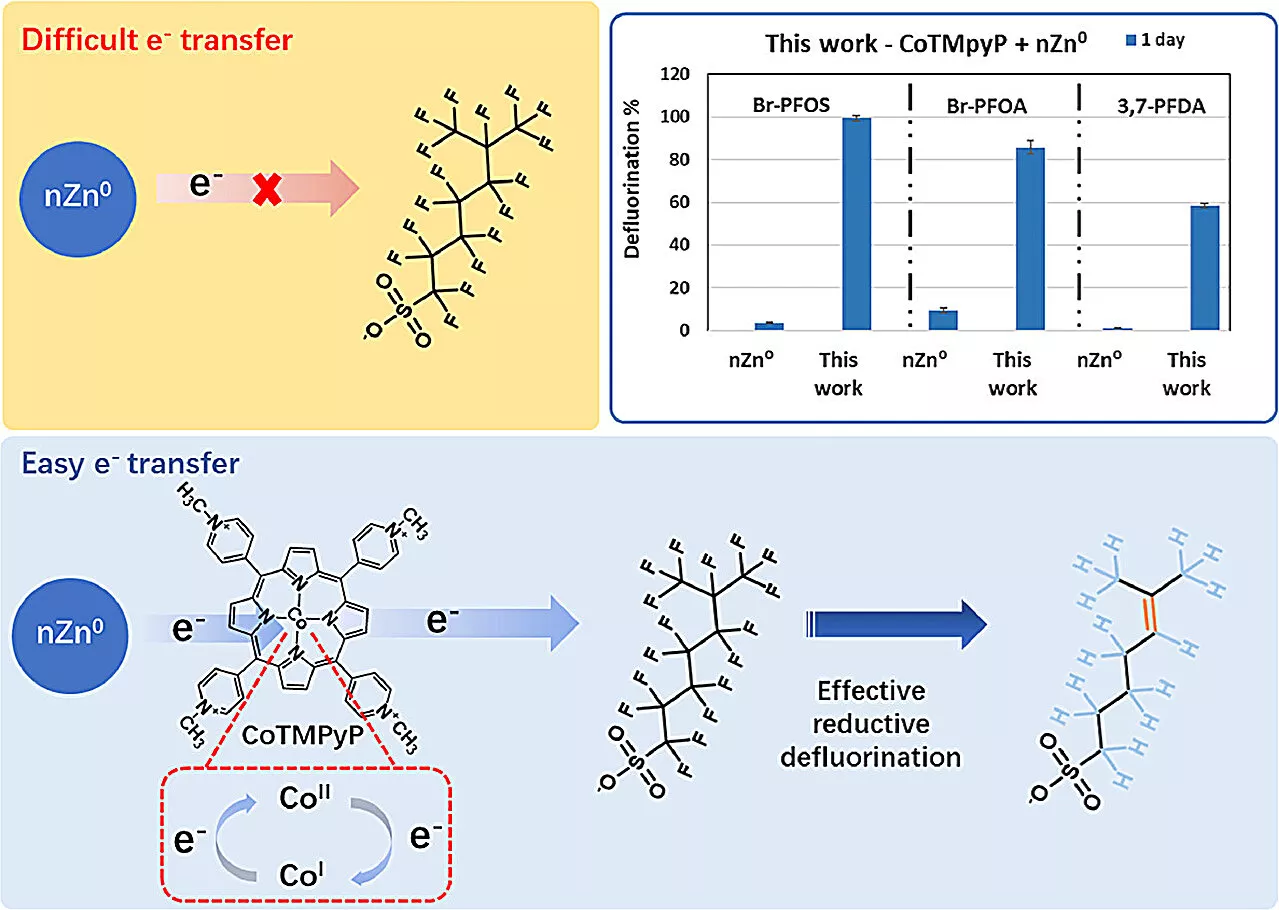Miriam Bergeret is a science writer and editor based in Toronto, Canada. Miriam holds a master's degree in laboratory medicine and pathobiology from the University of Toronto, where she also studied science journalism and communication.
New research on"forever chemicals" called PFAS has added to growing concerns about their potential effects on human health.
Current estimates suggest that nearly 15,000 different PFAS have been invented, and more continue to be developed. "We found that most of the PFAS we included in our study can absorb into human skin," Oddný Ragnarsdóttir, who led the study as part of her doctorate at the University of Birmingham in the U.K., told Live Science. At this point, though, it's unclear what doses of PFAS people would realistically be exposed to via skin contact, and how harmful those doses are.
As a result, in 2023, the IARC classified PFOA as"carcinogenic to humans" and PFOS as"possibly carcinogenic to humans." The agency's classifications aren't related to how much a substance might increase cancer risk but rather how conclusively the IARC can say it causes cancer at all. In that respect, the evidence is stronger for PFOA than for PFOS.Studies also suggest that PFAS might affect reproductive health.
United States Latest News, United States Headlines
Similar News:You can also read news stories similar to this one that we have collected from other news sources.
 British Columbia Sues PFAS ManufacturersBritish Columbia has sued the manufacturers of PFAS products for contaminating public drinking systems with 'forever chemicals.'
British Columbia Sues PFAS ManufacturersBritish Columbia has sued the manufacturers of PFAS products for contaminating public drinking systems with 'forever chemicals.'
Read more »
 New method to degrade PFAS 'forever chemicals' found effective in the labPer-and poly-fluoroalkyl substances (PFAS) are known as 'forever chemicals' because they are notoriously resistant to degradation. Due to their stable chemical structure, PFAS—which are found in thousands of variants—are used in oil and grease-resistant food packaging, non-stick cookware, cosmetics, clothing, and fire-fighting foams.
New method to degrade PFAS 'forever chemicals' found effective in the labPer-and poly-fluoroalkyl substances (PFAS) are known as 'forever chemicals' because they are notoriously resistant to degradation. Due to their stable chemical structure, PFAS—which are found in thousands of variants—are used in oil and grease-resistant food packaging, non-stick cookware, cosmetics, clothing, and fire-fighting foams.
Read more »
 PFAS 'forever' chemical laws need an overhaul—recent court rulings highlight the loopholesAs awareness of toxic, synthetic chemical pollution from per- and polyfluorinated substances (PFAS) increases, more legal settlements in billion dollar amounts are being made between chemical companies and public water suppliers, both in the US and Europe.
PFAS 'forever' chemical laws need an overhaul—recent court rulings highlight the loopholesAs awareness of toxic, synthetic chemical pollution from per- and polyfluorinated substances (PFAS) increases, more legal settlements in billion dollar amounts are being made between chemical companies and public water suppliers, both in the US and Europe.
Read more »
 Some landfill 'burps' contain airborne PFAS, study findsMany municipal landfills 'burp' gas from decomposing organic matter rather than letting it build up. And burps from buried waste containing per- and polyfluoroalkyl substances (PFAS) can release these 'forever chemicals' into the air, say researchers in Environmental Science & Technology Letters.
Some landfill 'burps' contain airborne PFAS, study findsMany municipal landfills 'burp' gas from decomposing organic matter rather than letting it build up. And burps from buried waste containing per- and polyfluoroalkyl substances (PFAS) can release these 'forever chemicals' into the air, say researchers in Environmental Science & Technology Letters.
Read more »
 Wild Boar Has Five Times More Toxic PFAS Than Humans Allowed To EatEvolutionary ecologist and ornithologist as well as a science writer and journalist. I'm active on many social medias (linked here) and I curate my writing on Medium and Substack.
Wild Boar Has Five Times More Toxic PFAS Than Humans Allowed To EatEvolutionary ecologist and ornithologist as well as a science writer and journalist. I'm active on many social medias (linked here) and I curate my writing on Medium and Substack.
Read more »
 Some landfill 'burps' contain airborne PFASMany municipal landfills 'burp' gas from decomposing organic matter rather than letting it build up. And burps from buried waste containing per- and polyfluoroalkyl substances (PFAS) can release these 'forever chemicals' into the air, say researchers.
Some landfill 'burps' contain airborne PFASMany municipal landfills 'burp' gas from decomposing organic matter rather than letting it build up. And burps from buried waste containing per- and polyfluoroalkyl substances (PFAS) can release these 'forever chemicals' into the air, say researchers.
Read more »
